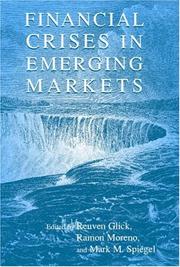| Listing 1 - 5 of 5 |
Sort by
|
Book
Year: 2001 Publisher: Cambridge, Mass. National Bureau of Economic Research
Abstract | Keywords | Export | Availability | Bookmark
 Loading...
Loading...Choose an application
- Reference Manager
- EndNote
- RefWorks (Direct export to RefWorks)
Digital
Year: 2001 Publisher: Cambridge, Mass. National Bureau of Economic Research
Abstract | Keywords | Export | Availability | Bookmark
 Loading...
Loading...Choose an application
- Reference Manager
- EndNote
- RefWorks (Direct export to RefWorks)
Book
Year: 2001 Publisher: London Centre For Economic Policy Research. Discussion Paper Nr 2891
Abstract | Keywords | Export | Availability | Bookmark
 Loading...
Loading...Choose an application
- Reference Manager
- EndNote
- RefWorks (Direct export to RefWorks)
Book
Year: 2001 Publisher: Cambridge, Mass. National Bureau of Economic Research
Abstract | Keywords | Export | Availability | Bookmark
 Loading...
Loading...Choose an application
- Reference Manager
- EndNote
- RefWorks (Direct export to RefWorks)
Does leaving a currency union reduce international trade? We answer this question using a large annual panel data set covering 217 countries from 1948 through 1997. During this sample a large number of countries left currency unions; they experienced economically and statistically significant declines in bilateral trade, after accounting for other factors. Assuming symmetry, we estimate that a pair of countries that starts to use a common currency experiences a doubling in bilateral trade.

ISBN: 052180020X 0521172187 0511572158 Year: 2001 Publisher: Cambridge : Cambridge University Press,
Abstract | Keywords | Export | Availability | Bookmark
 Loading...
Loading...Choose an application
- Reference Manager
- EndNote
- RefWorks (Direct export to RefWorks)
This 2001 book looks at numerous financial crises, beginning with Mexico in 1994-1995, the Asian crisis of 1997-1998, and the crises in Russia, Brazil, and other Latin American countries in 1998-1999. Such contemporary crises illustrate the risks of financial volatility and macroeconomic instability during the process of economic growth and development. They also raise issues regarding the management of risks associated with liberalization and global integration, particularly in financial markets. Concerns about the implications of international capital flows for developing countries have grown with the sharply increased volume of these flows since the late 1980s. The essays in this volume provide analysis and evidence on the determinants of currency and banking crises in emerging markets, the specific roles of capital flows and the financial sector, and the appropriateness of various policy responses.
Business cycles --- Financial crises --- Business, Economy and Management --- Economics --- Economic cycles --- Economic fluctuations --- Cycles --- Crashes, Financial --- Crises, Financial --- Financial crashes --- Financial panics --- Panics (Finance) --- Stock exchange crashes --- Stock market panics --- Crises
| Listing 1 - 5 of 5 |
Sort by
|

 Search
Search Feedback
Feedback About UniCat
About UniCat  Help
Help News
News